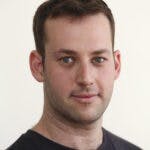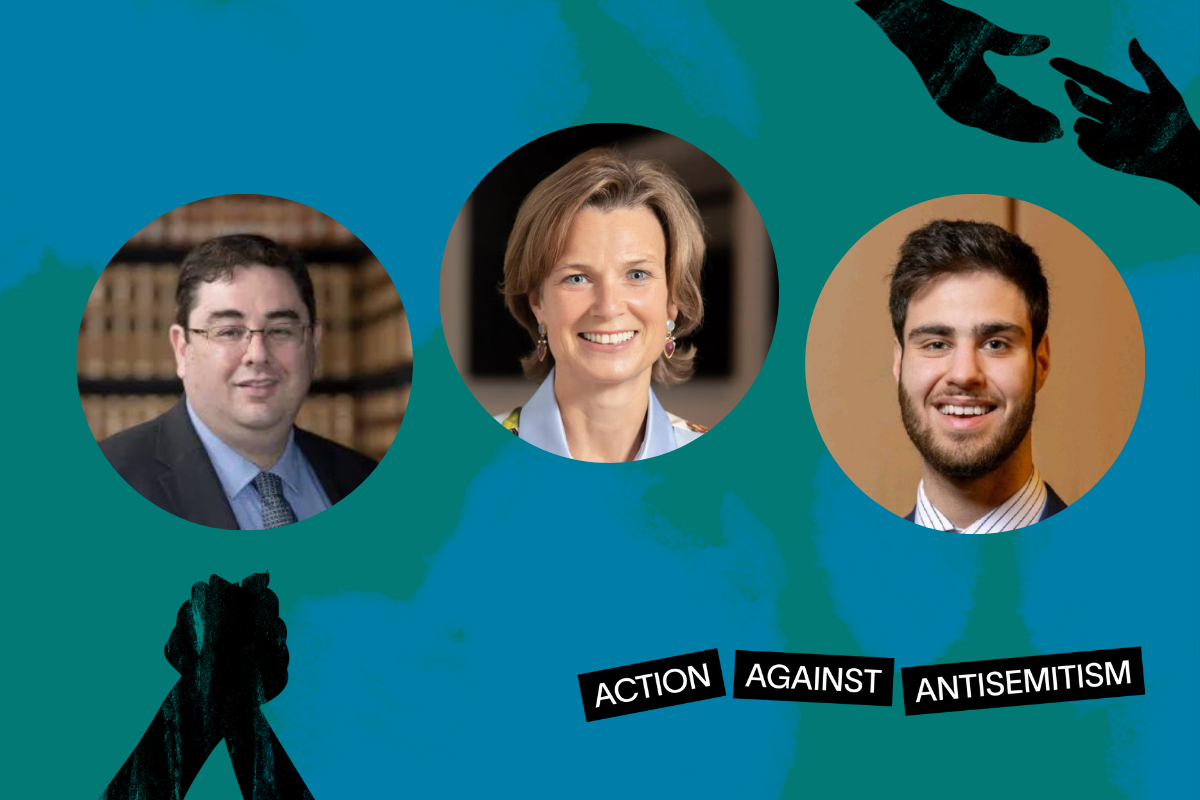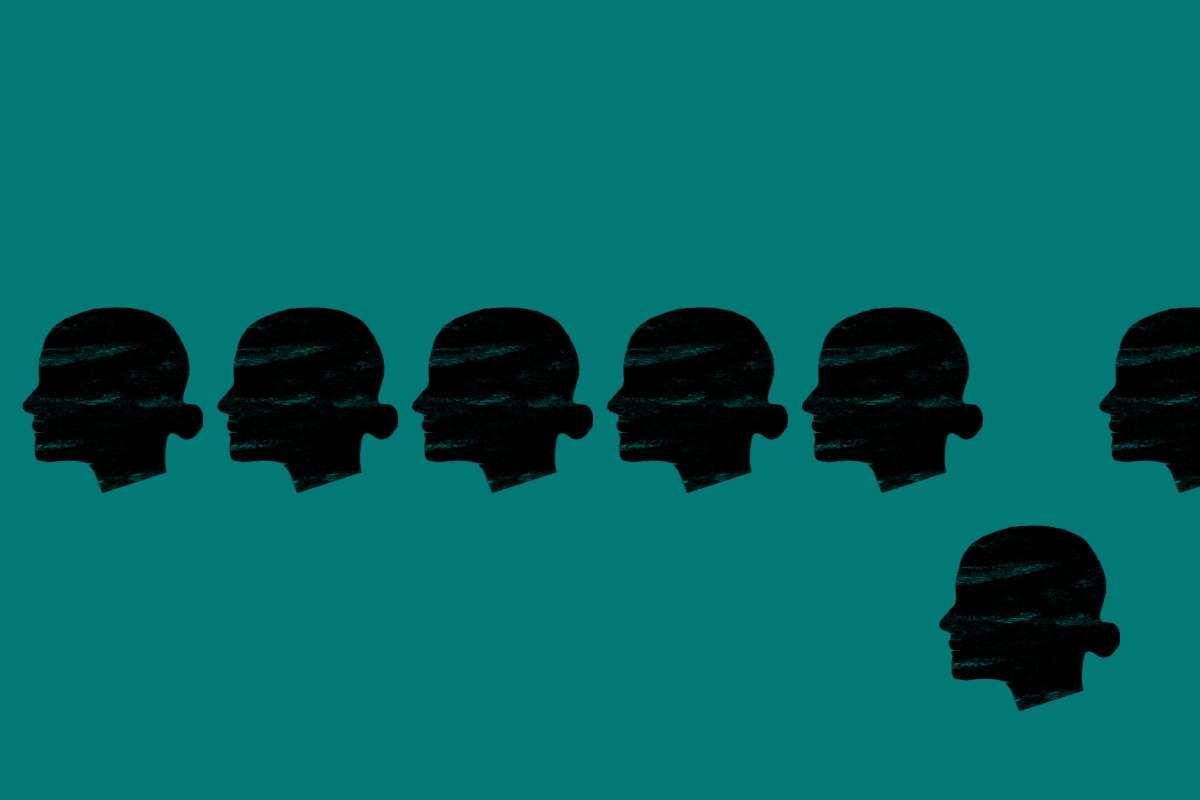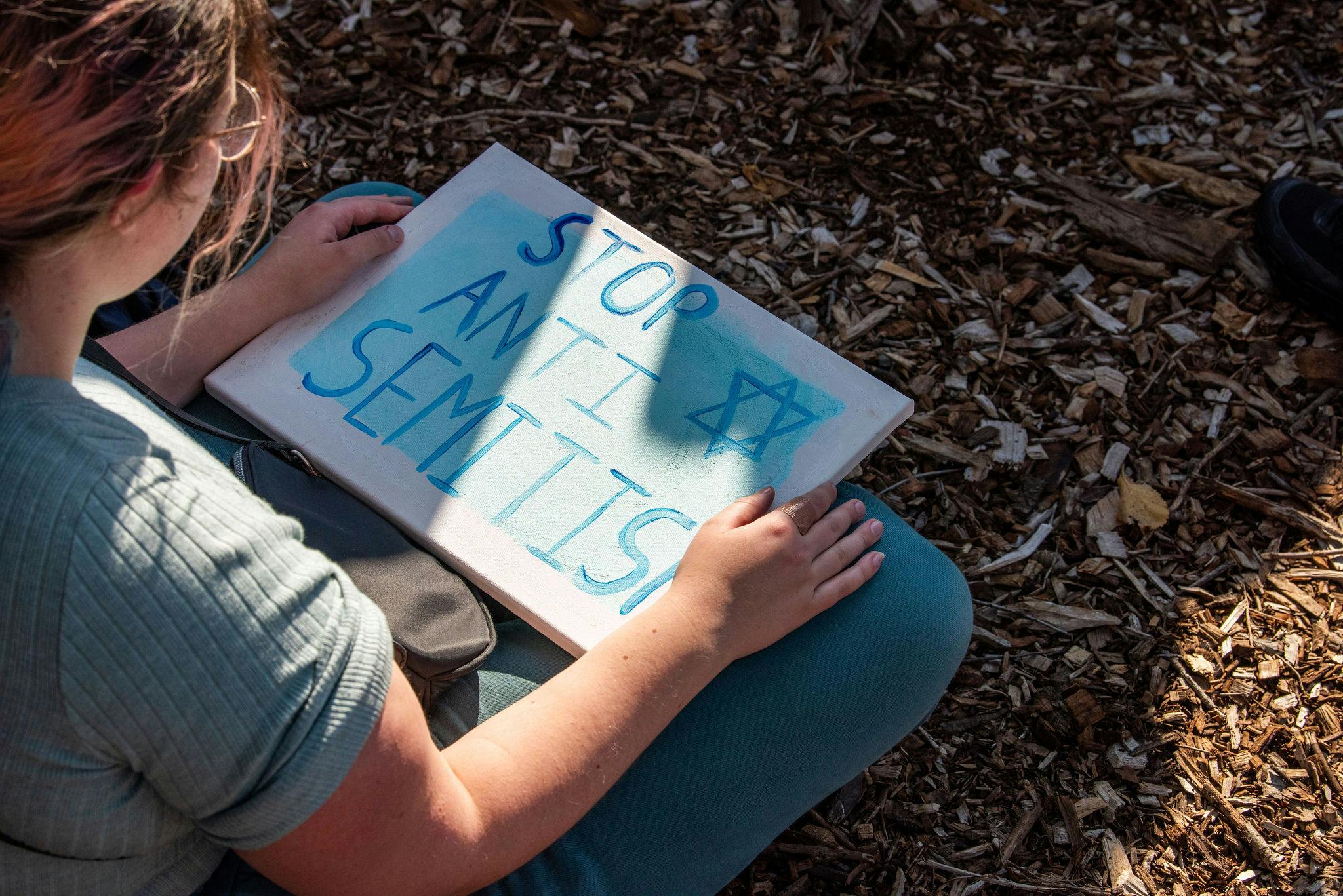Published: 3 April 2020
Last updated: 4 March 2024
THE MORNING DRIZZLE had just stopped as the small group gathered at the entrance to Woden Cemetery in Canberra for the funeral.
The crowd comprised eight: his son Jonathan and daughter Gial and their partners; his teenage grandson; and three close family friends. And then there was me, the rabbi. We practiced social distancing spontaneously and stood at a distance from one another, especially from one of the family friends who is himself 97 years old.
The two undertakers said they would remain in the hearse during the ceremony, so as not to violate new regulations limiting the number of funeral participants to ten. An odd Jewish funeral at a time of a global pandemic.
Born in Tottenham, London, in July 1922, Donald Leslie made a name for himself as a world-renowned China scholar, penning books on the Jews of Kaifeng and the Hui Muslims living in the most populous country in the world. He spent most of his career in Canberra, but his research took him to London, Paris, Kyoto, Jerusalem and Tel Aviv, where he translated Confucius into Hebrew.
I’d arrived in Canberra just one month ago after graduating from rabbinical seminary in Jerusalem last September, and this was the first funeral I would conduct. I had never met Donald Leslie, who’d spent his final years with family in Sydney, but knew that our Jewish tradition views bringing the deceased to burial as a hessed shel emet, an act of true loving-kindness.
After all, it is directed at someone who cannot return the favour. I felt the importance of my role, enhanced by the diminished number of friends and relatives, was crucial in providing emotional support to the bereaved family.
In preparation for the funeral, I read the words of the Talmudic sage Rav Yehuda in Tractate Berakhot: “One who sees the deceased and does not escort him has committed a transgression, as it is stated (in Proverbs): “He who mocks the poor blasphemes his Creator.” I was sure there were many people who would have escorted Professor Leslie on his final journey, were it not for this strange reality.
With the number of attendees limited to ten, this was going to be a funeral without Kaddish. Was there a way to compensate for the glaring omission,I asked in an email sent to a senior rabbi in Israel. He replied with the text of “Kaddish for an individual” taken from Sefer Hassidim, a collection of traditions practiced by early Ashkenazi Jews in the 12th and 13th centuries.
The three short verses in the prayer - gathered from the books of Numbers, Ezekiel and Psalms - highlight the sanctification of God’s name central to the Kaddish.
I printed eight copies of the “Kaddish for an individual” and distributed them to the family. But walking behind the hearse as I chanted Psalm 91, I started having second thoughts. Was I imposing my agenda on the family?
“Thus will I manifest My greatness and My holiness, and make Myself known in the sight of many nations,” the Prophet Ezekiel echoes God’s message, inspiring the opening words of the Kaddish: Yitgadal ve’Yitkadash shemeh Rabbah, Glorified and sanctified be God’s great name.
Indeed, observant Jews cannot help but ponder the meaning of that ancient prayer, as I have many times in recent days. Glorified and sanctified be God’s great name, throughout the world which He has created according to His will. The strange and frightening world of COVID-19, which he has created according to his will.
I printed eight copies of the “Kaddish for an individual” and distributed them to the family. But walking behind the hearse as I chanted Psalm 91, I started having second thoughts. Was I imposing my agenda on the family? My selfish need to “do this right”?
Our sources tell us that extreme modesty must be practiced in cemeteries. In the Talmud, Rabbi Hiyya scolds his friend Rabbi Yonatan for flaunting his tzitzit, his ritual fringes, as they walked through a cemetery. “Lift it,” Rabbi Hiyya cries out, “lest the dead say ‘tomorrow they will join us (in the grave) and today they are mocking us’.” For Jews, it would seem, even the feelings of the deceased must be respected at all times.
Donald Leslie, his children indicated, would have probably dismissed such reflections as sentimental and pointless. He was a staunchly secular man who made rare appearances in synagogue, mostly to recite the Yizkor prayer for deceased relatives. His worldview was shaped by modern enlightenment, not ancient scripture.
But a small anecdote, mentioned in the eulogy Leslie had penned for himself, and which was read out by his son over his open grave – indicated that this wasn’t always the case.
Newly Barmitzvah’d and back home from boarding school in Brighton, young Donald gave his parents Alf and Ada “a hard time” when he refused to eat their non-kosher meat. The religious episode wouldn’t last long, though. By 14 he’d discovered Dostoyevsky, and “became a dedicated socialist and atheist”.
And finally, there was Israel. The country which he decided to immigrate to on a whim in 1954; the country where he volunteered in the nascent IDF; and where his two eldest daughters were born. It was also Israel which connected him to his wife Helga, who’d arrived in London on the Kindertransport and was the sole survivor of her family.
He met Helga at the Israeli travel agency Shoham in London while booking his ticket for the Holy Land, and they reconnected once they’d arrived. It was Helga next to whom he was buried in Canberra on this bleak March morning.
“His wife Helga died a few years before him,” Donald Leslie wrote in the conclusion to his eulogy. “Otherwise he might never have died!”
READ MORE
Bucharest Jews can bury coronavirus dead on Shabbat to avoid cremation (Jerusalem Post)
The Jewish community of Bucharest, Romania, received a rabbinical allowance to bury coronavirus victims on Shabbat
Photo: Donald Leslie (courtesy family) and Woden cemetery (Elhanan Miller)
>




